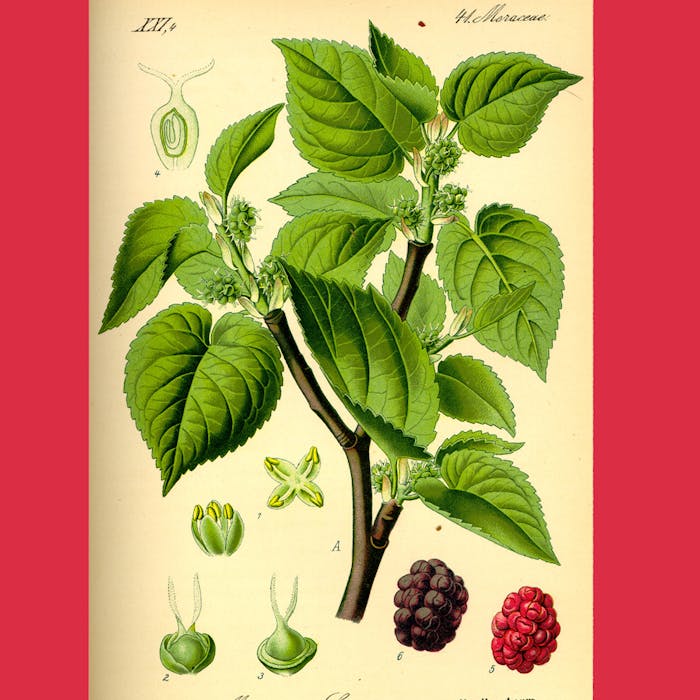
The mulberry tree in Britain
The black mulberry is not native to Britain. However, it was widely planted in Britain due to a campaign by King James I, who wanted a "home-grown" silk industry. Unfortunately, the black mulberry is the wrong tree for this!
The black mulberry is thought to be native to the highlands of Persia and Mesopotamia - though it has been under cultivation for so long that no one is quite sure of this.
Black mulberry trees have become naturalised, west across much of Europe, including Ukraine, and east into China. They are now widespread throughout the eastern Mediterranean and down to Afghanistan, India and Pakistan.
The trees are prized for their delicious fruits, though the plant is also thought to have medicinal properties. The Romans brought the first mulberry trees to Britain for this purpose, and some were planted in the Medieval period in monastery gardens for this reason.
Black mulberry trees don't self-seed in Britain and require careful cultivation when young. When Henry VIII swept away the monastic gardens in the Reformation, mulberries began to disappear.
But then rescue came from King James I, nearly 100 years later, who wished to compete with the successful silk industries of Italy and France. He brought in ten thousand mulberry trees to provide food for the silkworms, planting some in a large mulberry garden near Buckingham Palace and offered incentives for landowners to plant them across the country.
Unfortunately, the plan failed as it is the white mulberry that is the preferred food of the silkworm. However, the black mulberry is better suited to the British climate.
When a British silk industry was later established in London and elsewhere, imported silk was used.
Mulberry trees live a long time and become much-loved landmarks in their area. The fruits ripen by degrees from July right through to October and should be gathered within hours of falling. They don't travel well, which is why mulberries are rarely to be found on sale.
Further reading
Links to external websites are not maintained by Bite Sized Britain. They are provided to give users access to additional information. Bite Sized Britain is not responsible for the content of these external websites.
